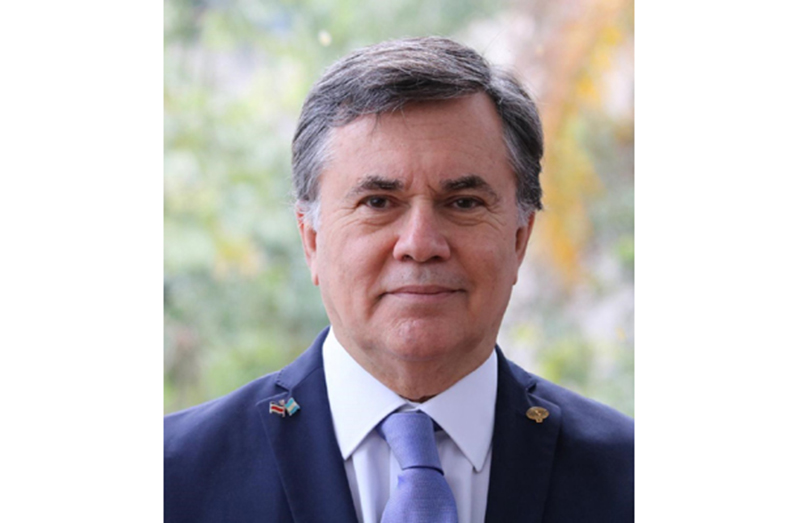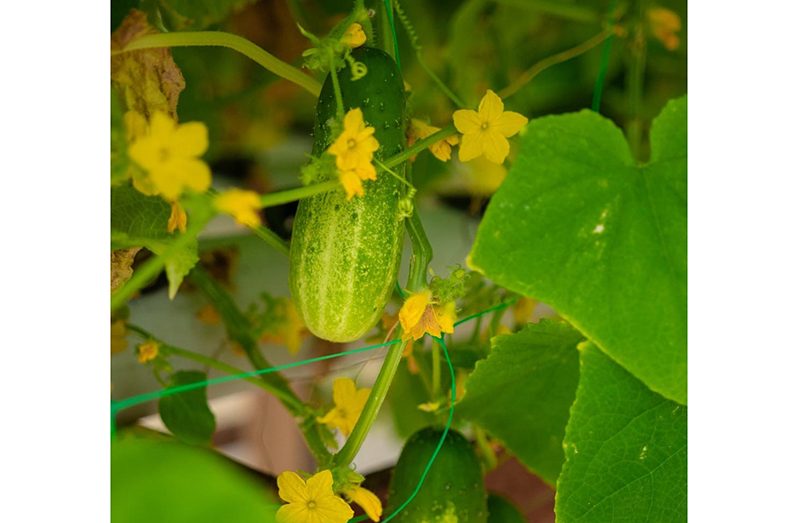-IICA director
AGRICULTURE accounts for approximately 70 per cent of all freshwater withdrawals globally. With the hope of reducing this figure and conserving water, regional stakeholders are adopting new technologies.
In a recent interview with the Guyana Chronicle, Inter-American Institute for Cooperation on Agriculture (IICA) Director Dr Manuel Otero, said: “precise agriculture” through the adaption [sic] of newer technologies will be needed.
“We have a hemispheric platform called water and agriculture, we have to recognise that first agriculture consumes 70 per cent of water …agriculture has to learn to use less water. We need to use precision agriculture, using less water to produce more food and in a different way,” Dr Otero explained.

Currently, the region is experiencing a prolonged dry season, which has seemingly affected farmers. To address the effects, IICA last year presented its Hemispheric Initiative on Water and Agriculture.
The initiative aims to consolidate capacities and promote strategic public-private sector partnerships in IICA member countries, as a means of improving the integrated management and efficient use of water in agriculture, in support of ministries and lead agencies.
According to information provided by IICA, the initiative will promote collective efforts to ensure that the region’s invaluable water resource will further contribute to achieving greener and more inclusive, resilient and sustainable development, despite the severe impacts of climate change.
IICA describes water as a strategic asset. Infrastructural development to better manage, store and distribute water is therefore fundamental for the region to advance in a sustainable way.
Water is also limited and as such, its effective and efficient use must be encouraged.

HYDROPONICS
In Guyana, however, efforts have begun to introduce climate-smart practices to farmers to conserve water, through hydroponics.
At Guyana’s National Agricultural Research and Extension institute (NAREI), five systems of hydroponics — the horizontal nutrient film technique (NFT); the vertical nutrient film technique ; the Dutch bucket system; the deep-flow technique (DFT); and the deep-water culture system (DWC) –have been adopted to cultivate vegetables, herbs and fruits.
Denisia Whyte, a research scientist attached to the Soil Management and Farm Mechanisation Department and the Special Projects Unit at NAREI, explained that these methods use less water to grow crops in an optimal environment.
“Hydroponics is farming without water, meaning that we allow the plant root to access nutrients solution, which is recirculated in a hydroponic system; or for the bigger plants, we use the Dutch-bucket system in which we usually have an earth material which is like coco core. You can use gravel, or paddy hull to support the plant,” Whyte explained.
 In promoting efficient water use and more climate-smart practices in agriculture, both farmers and agriculture officials in Guyana have been pursuing the science of growing food with less water through hydroponics.
In promoting efficient water use and more climate-smart practices in agriculture, both farmers and agriculture officials in Guyana have been pursuing the science of growing food with less water through hydroponics.
“In hydroponics, we have several advantages over what we would refer to as conventional agriculture, which is like ploughing the land and farming the earth. Hydroponics you will have all-year- round production because you are not affected by the elements of the weather; additionally, you will have shorter cropping cycles,” Whyte said.
Currently, NAREI is expanding the project through workshops with not only rural farmers, but also youths.
“We are in the phase where we are doing workshops, we are going out to have talks [and] we are present at most exhibitions, so we can spread the knowledge about hydroponics so farmers would be more [inclined] to adapt. We really want like the medium to small-scale farmers to adapt [sic] this type of technology,” Whyte explained.



.jpg)









